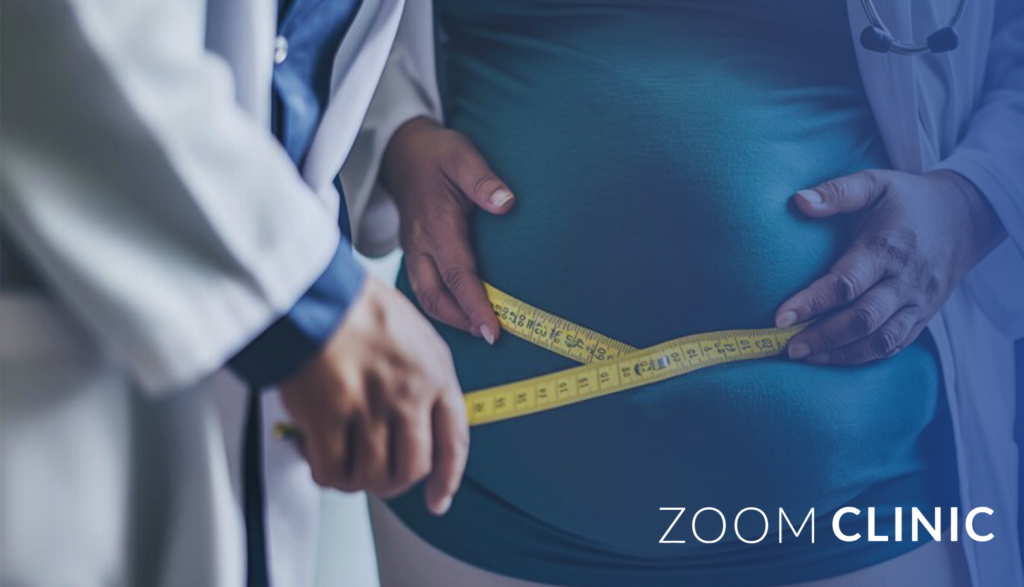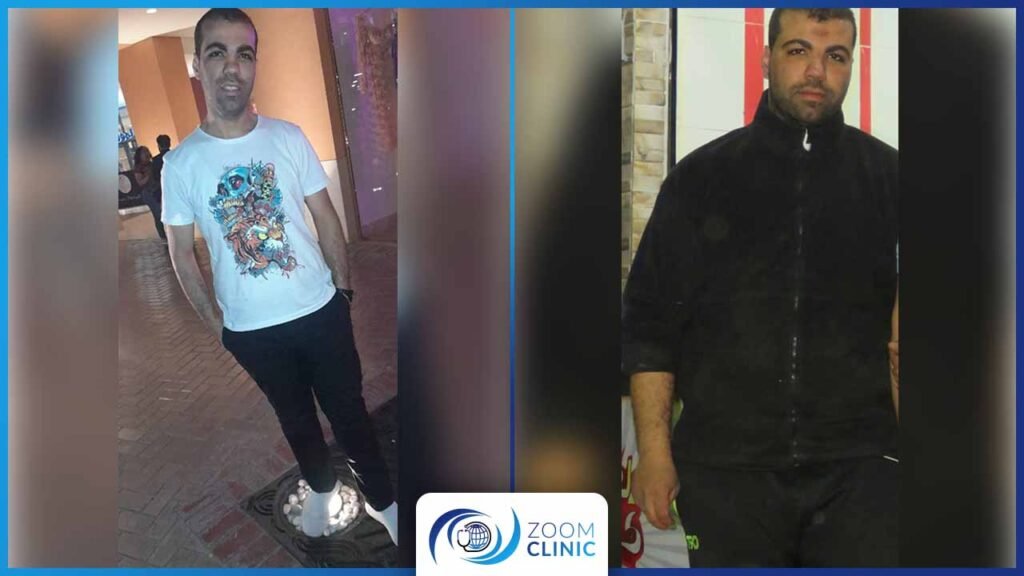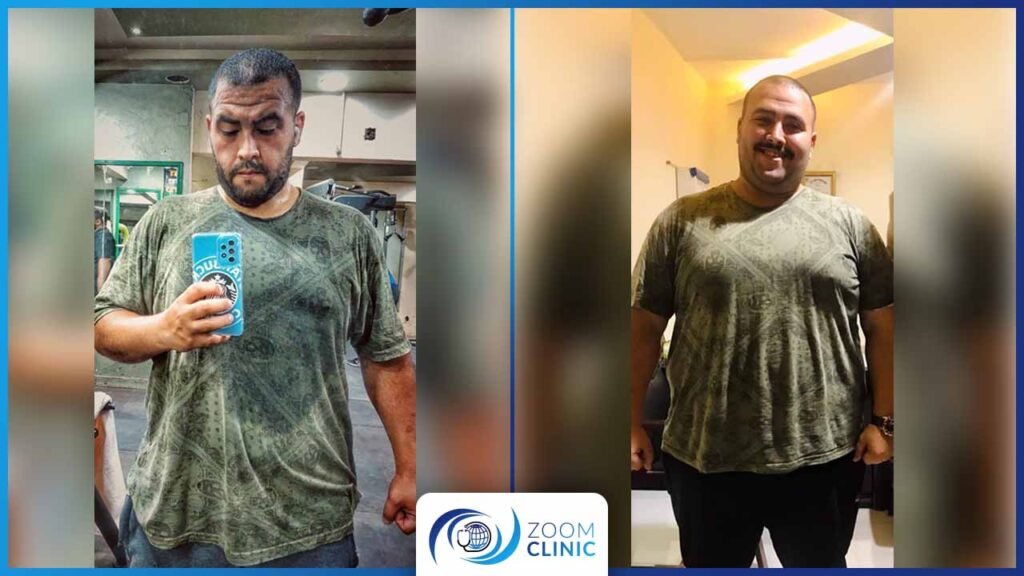Gastric sleeve surgery, known as sleeve gastrectomy, has gained popularity for its effectiveness in promoting weight loss, especially in individuals struggling with severe obesity. While the surgery primarily works by physically restricting the stomach’s size, limiting food intake, recent research has highlighted the significant role gut hormones play in the weight loss process after gastric sleeve surgery. These hormones are key in regulating hunger, satiety, and metabolic functions, making them crucial components of the surgery’s success.
At Zoom Clinic, the best Gastric Sleeve Surgery clinic in Turkey with over 10 years of experience, we strive to not only offer surgical solutions but also educate our patients on how their bodies work post-surgery to achieve optimal results. In this comprehensive guide, we’ll explore the Reason for Weight Loss after Gastric Sleeve Surgery and why understanding their role is essential for long-term success.
Table of content
1. Introduction to Gastric Sleeve Surgery and Its Mechanism
Before delving into the role of gut hormones, it’s essential to understand how gastric sleeve surgery works. During the procedure, a significant portion of the stomach is removed—around 75-80%—leaving a tube-like structure resembling a sleeve. This reduction in stomach size limits the amount of food that can be consumed at once, leading to reduced calorie intake.
However, the surgery’s effects extend far beyond mechanical restriction. With the alteration of stomach anatomy, the body’s hormonal response to food intake also changes, enhancing the effectiveness of the surgery. Understanding how these gut hormones function is crucial to comprehending the long-term weight loss results of gastric sleeve surgery.
2. What Are Gut Hormones?
Gut hormones are chemical messengers produced by specialized cells in the stomach, intestines, and pancreas. They play a significant role in regulating digestion, appetite, and energy balance. After gastric sleeve surgery, certain gut hormones undergo notable changes, influencing both appetite control and metabolic rate.
The major gut hormones involved in weight loss after gastric sleeve surgery include:
- Ghrelin
- Leptin
- Peptide YY (PYY)
- Glucagon-Like Peptide-1 (GLP-1)
- Cholecystokinin (CCK)
Each of these hormones plays a distinct role in how the body responds to food and energy balance, particularly in the context of post-surgery weight loss.

3. Ghrelin: The Hunger Hormone
Ghrelin is commonly referred to as the “hunger hormone” because it stimulates appetite. It is primarily produced in the stomach and signals the brain when it’s time to eat. Before gastric sleeve surgery, ghrelin levels tend to rise before meals and fall after food is consumed.
3.1. Ghrelin and Gastric Sleeve Surgery
One of the most significant hormonal changes following gastric sleeve surgery is a dramatic reduction in ghrelin production. Since the surgery removes a large portion of the stomach, which is the primary source of ghrelin, patients experience lower levels of this hormone. As a result, hunger sensations are reduced, leading to lower food intake and more controlled eating patterns.
3.2. Impact on Weight Loss
The suppression of ghrelin is one of the key factors contributing to long-term weight loss after gastric sleeve surgery. Patients often report feeling less hungry, which helps them adhere to a reduced-calorie diet without the constant sensation of hunger.
4. Leptin: The Satiety Hormone
Leptin is known as the “satiety hormone” and is produced by fat cells. It signals the brain when the body has had enough food and energy, promoting feelings of fullness. However, in individuals with obesity, leptin resistance can occur, meaning the brain doesn’t receive or respond to the satiety signals, leading to overeating.
4.1. Leptin Levels Post-Surgery
After gastric sleeve surgery, patients experience changes in leptin sensitivity. With weight loss and reduced fat mass, leptin levels decrease, but more importantly, the body becomes more responsive to leptin signals. This means that patients start to feel fuller after eating less food, further supporting long-term weight loss.
4.2. Leptin and Metabolic Rate
Improved leptin sensitivity also helps regulate the body’s metabolism, preventing the drastic reduction in metabolic rate often seen with calorie restriction. By maintaining a more stable metabolic rate, gastric sleeve patients can avoid the common plateau in weight loss that many dieters face.
5. Peptide YY (PYY): The Fullness Hormone
Peptide YY (PYY) is another hormone that plays a crucial role in suppressing appetite. Released by the small intestine after eating, PYY reduces food intake by slowing down gastric emptying and signaling fullness to the brain.
5.1. Enhanced PYY Secretion After Surgery
After gastric sleeve surgery, PYY levels increase significantly, particularly after meals. This heightened secretion leads to stronger signals of fullness, helping patients reduce portion sizes and maintain a low-calorie diet without feeling deprived.
5.2. Contribution to Long-Term Weight Loss
Increased levels of PYY contribute to sustained weight loss by reducing hunger and promoting satiety. Patients who have undergone gastric sleeve surgery report feeling fuller for longer periods, which aids in maintaining their weight loss goals.
6. GLP-1: The Insulin-Regulating Hormone
Glucagon-Like Peptide-1 (GLP-1) is a hormone that plays a dual role in regulating appetite and insulin secretion. It is produced in the intestines in response to food intake and helps enhance feelings of fullness while also stimulating insulin release, aiding in blood sugar control.
6.1. GLP-1 and Appetite Suppression
After gastric sleeve surgery, GLP-1 levels increase, which contributes to reduced hunger and improved insulin sensitivity. This is particularly beneficial for patients with type 2 diabetes or insulin resistance, as it helps stabilize blood sugar levels while promoting weight loss.
6.2. Impact on Metabolic Health
The rise in GLP-1 post-surgery also helps improve metabolic health by regulating blood sugar and promoting fat loss. By enhancing insulin sensitivity, GLP-1 plays a vital role in preventing the development or worsening of diabetes in gastric sleeve patients.
7. Cholecystokinin (CCK): Digestive Hormone and Satiety Signal
Cholecystokinin (CCK) is a hormone released by the small intestine in response to fat and protein consumption. It helps slow digestion and promotes satiety by stimulating the release of digestive enzymes and bile from the pancreas and gallbladder, respectively.
7.1. Enhanced CCK Response Post-Surgery
Following gastric sleeve surgery, patients experience an increase in CCK secretion, particularly after consuming high-protein or high-fat meals. This contributes to feelings of fullness and slower digestion, helping patients maintain portion control.
7.2. Role in Long-Term Weight Management
By promoting satiety and improving digestion, CCK helps patients stick to their post-surgery dietary plan, which typically emphasizes smaller, nutrient-dense meals. The increase in CCK levels further supports sustainable weight loss after gastric sleeve surgery.
8. The Synergy of Gut Hormones in Weight Loss

The success of gastric sleeve surgery in achieving long-term weight loss is not solely due to the physical restriction of the stomach but also the complex hormonal changes that occur post-surgery. The reduction in ghrelin, combined with the increased secretion of hormones like PYY, GLP-1, and CCK, creates a hormonal environment that supports weight loss, satiety, and improved metabolic health.
Zoom Clinic clients before and after obesity treatment surgeries





9. Conclusion: Understanding the Hormonal Changes After Gastric Sleeve Surgery
For individuals undergoing gastric sleeve surgery, understanding the role of gut hormones in weight loss can be empowering. By appreciating the changes in ghrelin, leptin, PYY, GLP-1, and CCK levels, patients can better adhere to their post-surgery dietary plans and achieve long-term success.
At Zoom Clinic, Turkey’s leading Gastric Sleeve Surgery clinic with over 10 years of experience, we guide our patients through every stage of the process, from surgery to post-operative care. By combining cutting-edge surgical techniques with a deep understanding of the body’s hormonal response, we ensure the best possible outcomes for our patients.
Get the special offer today from Zoom Clinic
Read Also:


